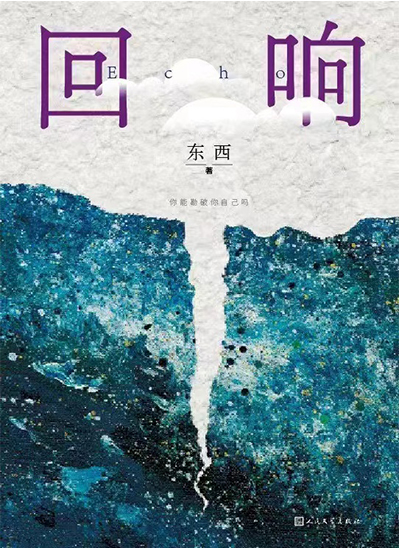‘Echo’ touches on individual’s inner struggle

FILE PHOTO: Echo by the Chinese writer Dong Xi
My literary sensibilities were shaped in the 1990s, a time when China was gradually opening up and experiencing a surge of diverse literary trends. During this period, young people gravitated towards challenging literary works, and there was a strong emphasis on innovation. Though literature changed a lot over the past 30 years, with avant-garde novelists returning to more traditional styles, the influence of ’90s continues to inspire me to innovate.
My novel Echo is a product of this influence, as I have been dedicated to portraying the inner worlds of the characters. I believe that the inner world is a reflection of reality, and a well-crafted inner world provides an alternative perspective on capturing reality. Delving into the richness of the soul requires a certain level of psychological insight. This has reignited my sense of innovation, with new words springing to mind to help analyze the characters in my novel.
“Psychological Hyperopia:” To meet her parents’ expectations, Xia Bingqing [a female character who was murdered in the novel] lied to them about working in Beijing. In reality, she lived in a rented room less than 5 kilometers away from her parents’ house, pretending all the while to be working in Beijing. Since childhood, Xia’s parents had imposed their will on her, altering her college applications without consulting her, pressuring her into a job she disliked, and planning a future she didn’t want. It would have been easy to confirm whether Xia had actually gone to Beijing, as simple as poking through a layer of window paper. However, Xia’s parents couldn’t be bothered to investigate—they were content to believe what they wanted. This is a case of reality blindness. “They prove once again that the closer people are, the less aware they are, just like noses don’t know eyes, and the eyes don’t know eyelashes.”
“Hallucination of Simplicity:” This is a label attributed to the character Xu Shanchuan. In his words, “I like simplicity and straightforwardness, whether it’s making friends or doing things. I don’t want to waste even a minute on complicated things……Sometimes I work so hard that I sweat, just to avoid those scheming people.” His wife Shen Xiaoying, who holds a psychology degree, referred to this mindset as a “Hallucination of Simplicity,” signifying a tendency to harbor simplistic illusions about reality, akin to the naivety of an infant, and ultimately rejecting psychological growth. This term was derived from my life experiences, as I once grappled with a similar psychological outlook. I yearn for a life of order, especially during busy periods, for fear that the slightest interference might derail my writing plan.
“Sentimental Twilight Moment:” Protagonist Ran Dongdong is a police officer, who is frequently on duty until 5 am. Over time, she observed that people tend to become more sentimental in the twilight moments before sunrise, like the sadness of observing flowing water and falling blooms. Recognizing this, she began to conduct suspect interrogations during this twilight period, which were often wildly productive. Wu Wenchao, an absconding convict who had been neglected by his parents since childhood, texted his mother at 6 am: “Mom, I have been missing you for ten years.” I grew up in the countryside, where the sunrise and sunset always evoked a sense of sadness within me. The sight of weary birds returning to the forests, livestock heading home, and roosters heralding the morning has left an indelible imprint on my mind.
“The Three Stages of Love” summarizes Ran Dongdong’s deep understanding of love and its stages. The first stage, the “chewing-gum stage,” represents the initial phase of love between her and Mu Dafu—“They were like a piece of chewed gum that was impossible to be torn apart.” The second stage, or the “cocktail period,” spans from her pregnancy to when her daughter was three years old. Her love for her husband was diluted by the demands of newborn life, gradually transforming into a family bond that encompassed parental love and the love between a couple. The third stage, the “airplane-mode period,” extends from her daughter’s sixth year to her present life. She feels as though she has forgotten about love, likening it to a mobile phone in airplane mode—no signal, even though it’s on. Her husband has to file an application every time he wants to “switch off airplane mode,” while she decides whether to “connect” with him or not. Perhaps many married individuals can relate to these sentiments, although there must be exceptions.
I hope these new insights that have emerged from my mind can endure the test of time.
Dong Xi is the author of Echo, one of the full-length winners of the 11th Mao Dun Literature Prize.
Edited by REN GUANHONG
